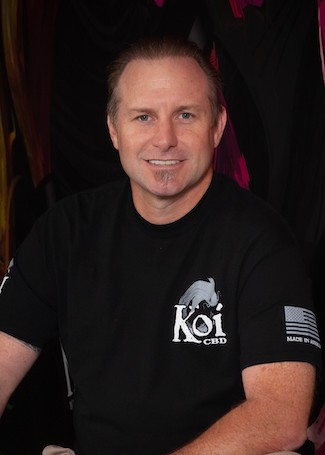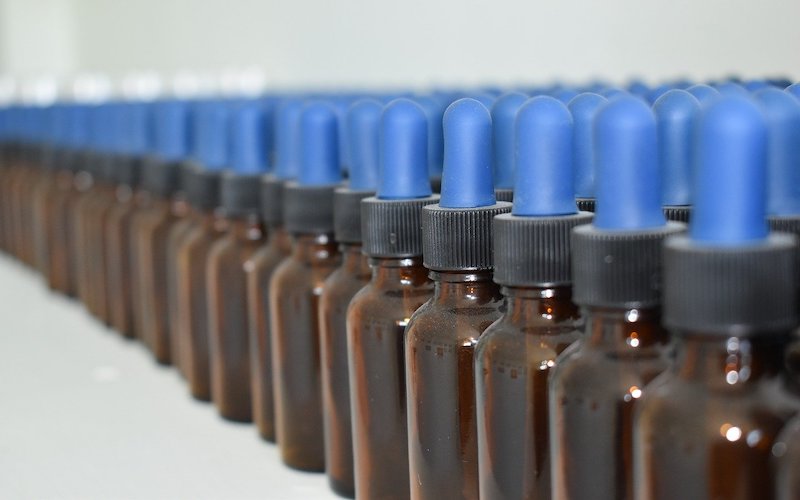CBD has built a lot of hype for itself over the past few years. This has caused a mountain of information and products that now towers over consumers. What makes one CBD product different than another? How do you make your product stand out? As a consumer, how do you differentiate between the high-quality products and snake oil. We explore these questions with Koi CBD Co-Founder Brent Brunner in this exclusive interview.
Cannabis & Tech Today: In an ocean of CBD products, could you tell us about what makes your product unique?
 Brent Brunner: Koi has a story of quality and consistency – offering products from our organic hemp farms in Kentucky, Colorado, and Oklahoma. Each carefully selected to meet the highest standards of agricultural quality and consistency. When supply arrives to our facility in California, we first have it tested by accredited by third party labs to check for pesticides, mycotoxins and foreign matters. But what sets us apart from a lot of other CBD companies is our whole plant extraction method.
Brent Brunner: Koi has a story of quality and consistency – offering products from our organic hemp farms in Kentucky, Colorado, and Oklahoma. Each carefully selected to meet the highest standards of agricultural quality and consistency. When supply arrives to our facility in California, we first have it tested by accredited by third party labs to check for pesticides, mycotoxins and foreign matters. But what sets us apart from a lot of other CBD companies is our whole plant extraction method.
For us, it’s not just about extracting CBD – we purify the whole product removing THC, C02, chlorophyll, amino acids and carbohydrates to develop the best tasting products in the industry. With the oil refined to its purest state, we reintroduce the original terpenes which together with cannabinoids delivers a safe balancing affect. Every batch is bottled using a single vessel process that minimizes human error and cross contamination – and just for good measure – before shipping any new products out, we send them to a third party testing facility to ensure each batch is clean, consistent and pure – living up to the promise on our labels. From farm, to lab, to bottle, it all takes about three weeks. It’s quality you feel, taste, and trace, thanks to the little batch numbers on every product we stand behind. This is the Koi Standard!
C&T Today: What’s your strategy for making your brand stand out in a growing CBD market?
BB: It all starts with having the right people, products and processes in place to stand out from every other CBD company in the world. This means putting together the best team and having strategies in place that promote the overall growth of the company. This includes: focused marketing efforts, efficient manufacturing processes, and developing a brand that people can trust and truly enjoy. We’re a family at Koi and love what we do which translates into every product we create.
C&T Today: How do you feel about FDA regulation of CBD? Will that get rid of a lot of snake oil?
BB: Koi feels that regulations and standards are good for the industry. This will be advantages for those companies like Koi that focus on quality and consistency. In the end, those companies that have processes in place to manufacture quality products will survive. Those that do not, will no longer exist!
At the end of the day, regulations will be good for consumers expecting to receive what is advertised. According to the FDA, over 70-percent of companies do not meet label claims – this is a problem, as it relates directly back to the reputation of the CBD industry. Koi looks forward to standardized/ reasonable regulations that promote industry standards! This will allow reputable companies like Koi to flourish in a market that has minimal regulatory control at this point in time.
C&T Today: What do you think it will take for CBD to finally kick the stigma that has been attached to it for so long?
BB: It really comes down to education. So many people do not know what CBD is and believe it has psychoactive properties / affects. This along with an increased distribution within national pharmacies, drug stores and and main stream retail will establish confidence. Finally – as more case studies are published by physicians’ and reputable medical institutions, many self-reported attributes will be confirmed, thus kicking the stigma attached to CBD.







